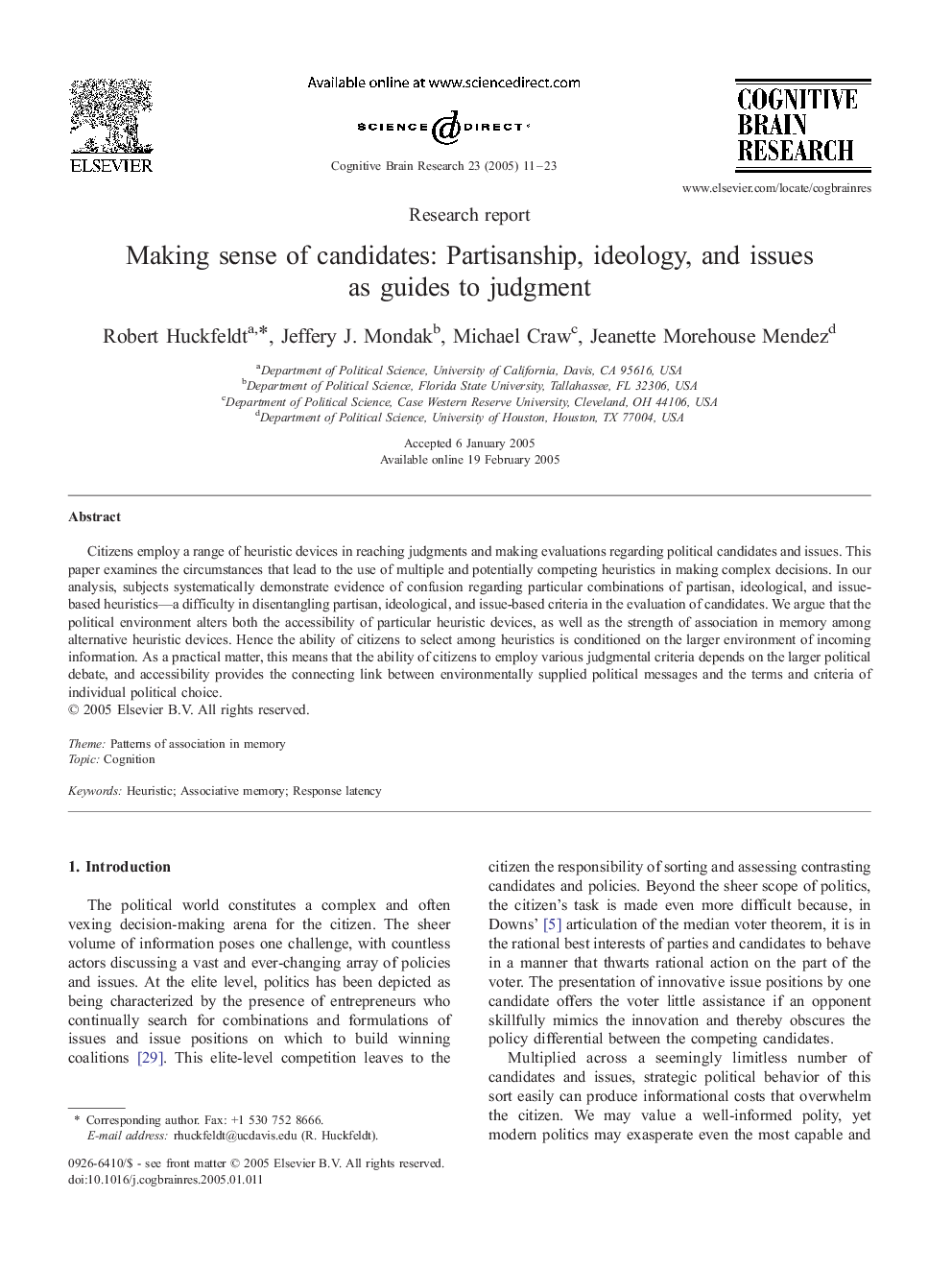| Article ID | Journal | Published Year | Pages | File Type |
|---|---|---|---|---|
| 9408173 | Cognitive Brain Research | 2005 | 13 Pages |
Abstract
Citizens employ a range of heuristic devices in reaching judgments and making evaluations regarding political candidates and issues. This paper examines the circumstances that lead to the use of multiple and potentially competing heuristics in making complex decisions. In our analysis, subjects systematically demonstrate evidence of confusion regarding particular combinations of partisan, ideological, and issue-based heuristics-a difficulty in disentangling partisan, ideological, and issue-based criteria in the evaluation of candidates. We argue that the political environment alters both the accessibility of particular heuristic devices, as well as the strength of association in memory among alternative heuristic devices. Hence the ability of citizens to select among heuristics is conditioned on the larger environment of incoming information. As a practical matter, this means that the ability of citizens to employ various judgmental criteria depends on the larger political debate, and accessibility provides the connecting link between environmentally supplied political messages and the terms and criteria of individual political choice.
Related Topics
Life Sciences
Neuroscience
Behavioral Neuroscience
Authors
Robert Huckfeldt, Jeffery J. Mondak, Michael Craw, Jeanette Morehouse Mendez,
